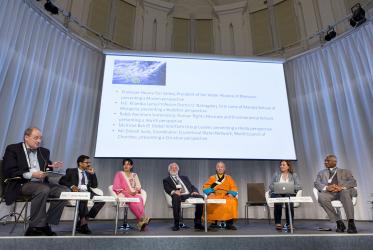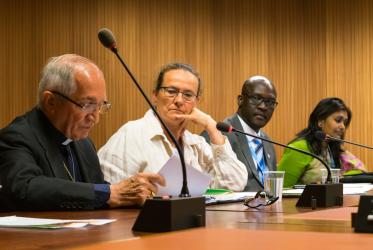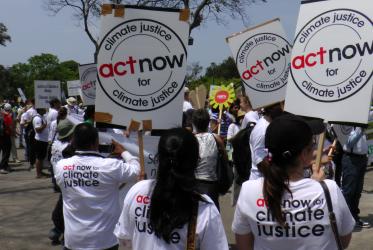Displaying 61 - 80 of 96
09 February 2017
Plans for 2017 decided by WCC Executive Committee
01 December 2016
WCC Executive Committee issues statement on climate justice
25 November 2016
GEM school ends with hope for a better tomorrow
08 September 2016
A just financial and economic architecture is possible, students find
08 September 2016
Consultation considers right to food in context of climate change
15 December 2015
Interfaith workshop calls for justice and compassion in finance
03 December 2015
Climate pilgrimage toward COP21 pauses in Geneva
05 November 2015
Hundreds of pilgrims making way to UN Climate Change Conference
27 October 2015
Churches' “prophetic voice” will be busy in 2015
18 June 2015











